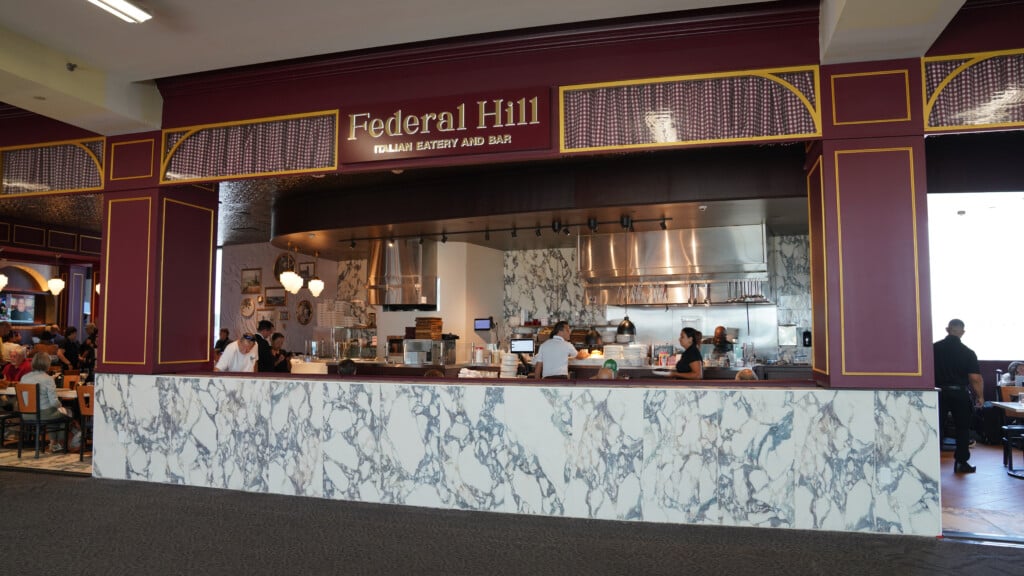The Secret Life of Quonset
Despite its importance to the state, few Rhode Islanders know what really goes on at Quonset Point.

Andrew Kamara and Rami Kawsara. Photography by James Jones.
Andrew Kamara, logistics and distribution Manager, and Rami Kawsara, Quality Control Supervisor, Edesia Nutrition
To Andrew Kamara and Rami Kawsara, edesia nutrition’s mission to provide help to children in strife-ridden parts of the world isn’t some well-intentioned abstraction. It’s part of their life experience.
Edesia’s packaged nutrition supplements are designed to bring children back from the brink of starvation and to help treat and prevent acute malnutrition in kids younger than five. “To kids who are malnourished, this food is life,” says Kamara, who spent four years in a refugee camp after being driven from his home during the civil war in Sierra Leone in the late 1990s. “It’s a miracle to them.”
Distributed through groups like the United States Agency for International Development, UNICEF and Doctors Without Borders, the vitamin-packed, high-protein food packs can save the life of a severely malnourished child for an investment of as little as $50.
Each package contains 500 calories of peanut, milk and whey-based food, formulated for easy swallowing by children who are so weak from hunger that they can barely open their mouths to eat. The products require no refrigeration, don’t have to be mixed with (potentially contaminated) water, and have a two-year shelf life.
“I came close to dying in Sierra Leone, and when I met Edesia founder Navyn Salem, I felt like I knew these kids,” says Kamara. “I’ve seen the product. I used to live on something like this product.”
Kawsara, whose job is to ensure that every package of Edesia’s food is safe for consumption, was being held at gunpoint by ISIS in Syria just ten days before arriving in the United States. The terrorist group wanted him for his training in agricultural engineering; Kawsara managed to slip away from his would-be captors, but had to flee his home country to avoid recapture or retaliation.
Fortunately, he was able to swiftly apply for asylum in the United States and found a home with an uncle living in Rhode Island, and later a job with Edesia, where he puts his training to work ensuring that every nutritional pack that lands in the hands of a malnourished child is free from microbial contamination — a potential death threat to a highly vulnerable population.
Edesia has distributed more than eight million nutrition packets since opening in 2010, including to victims of earthquakes in Haiti, typhoons in the Philippines and conflicts in Syria, Yemen and in countries across Africa. Kamara has translated his firsthand experience of living in a war zone into managing Edesia’s shipments of relief supplies, working with shipping companies, charities and contacts in destination countries to ensure that food gets to children as quickly as possible.
“In a humanitarian crisis, the time you have to get shipments out is very short,” says Kamara.
Once displaced refugees, Kamara and Kawsara now routinely refer to each other as brothers, and to Edesia — a company where twenty-seven languages are spoken — as family.
“This is not just a job,” says Kamara. “It feels like a mission to change the life of children around the world who would not live to see another day.” Kawsara agrees, saying, “You are contributing to a mission of saving someone’s life. What’s greater than that?”
























